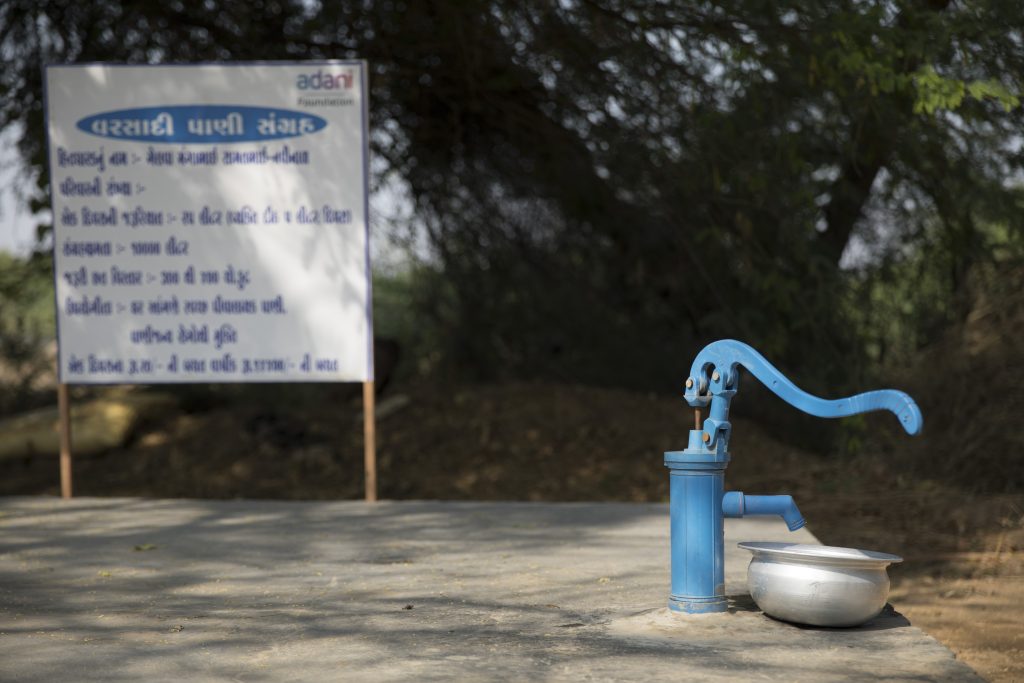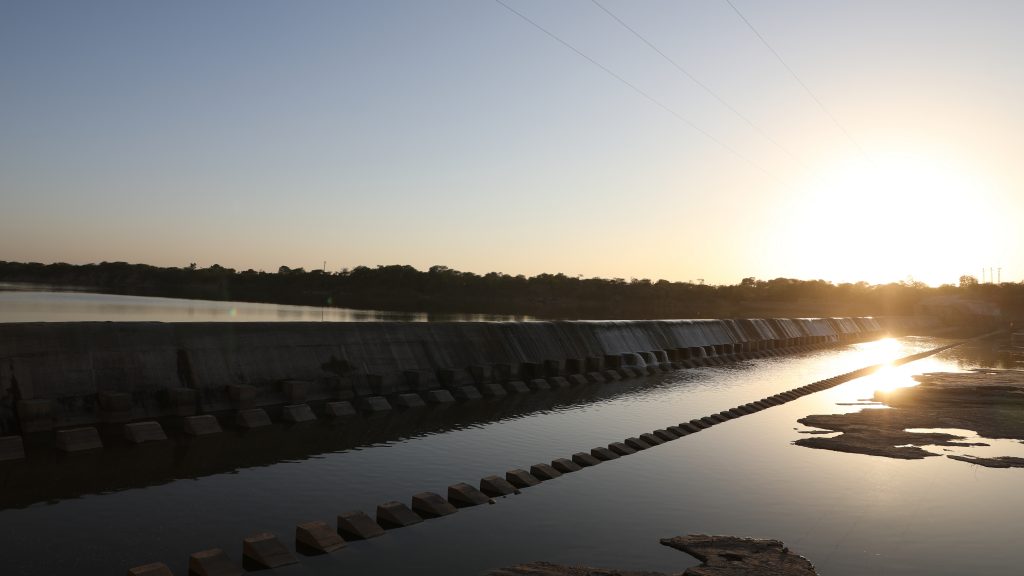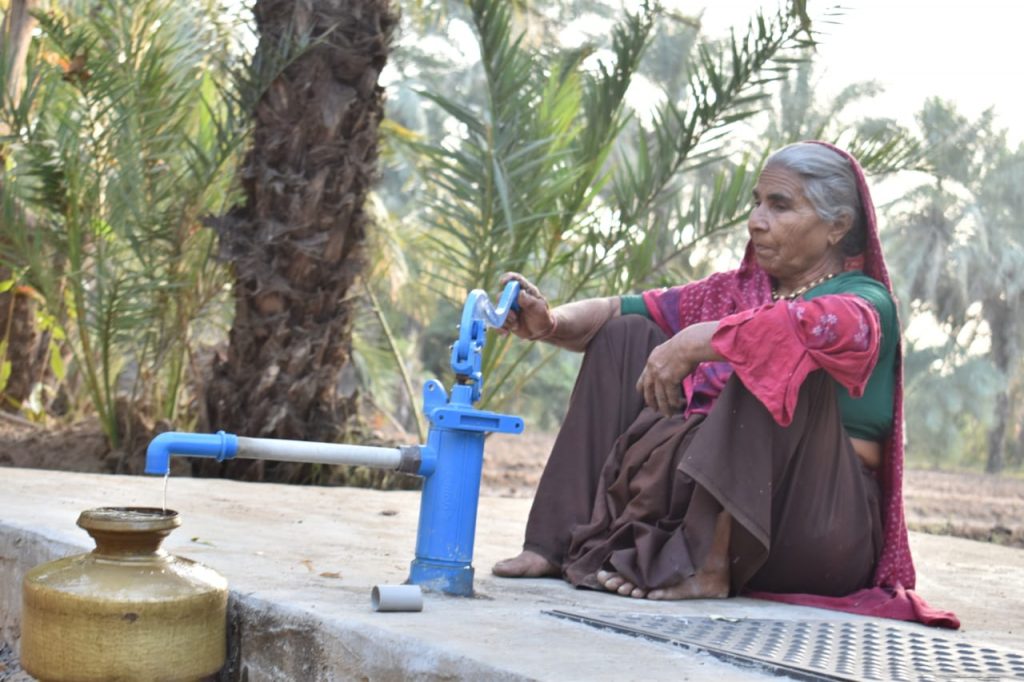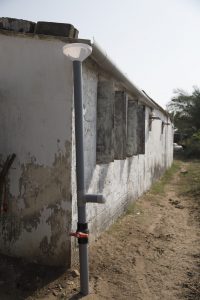 Ahmedabad: Growing up we would often hear that water is naturally available in abundance on this planet. However, over the last few decades, this very source of life has been depleting at an astonishing rate. India has been facing severe water scarcity forcing us to think of ways to not just conserve water but also recycle and reuse it for maximum output.
Ahmedabad: Growing up we would often hear that water is naturally available in abundance on this planet. However, over the last few decades, this very source of life has been depleting at an astonishing rate. India has been facing severe water scarcity forcing us to think of ways to not just conserve water but also recycle and reuse it for maximum output.
To create more awareness about this grave issue whilst also focusing on feasible solutions, every year, World Water Day is celebrated on March 22. This year’s theme is ‘Groundwater: Making the Invisible Visible.’ Considered to be one of the most pivotal sources of water, groundwater is found in aquifers – geological formations of rocks, sands and gravels that hold substantial quantities of water.
It is one of the main sources of water supply used for drinking, sanitation, food production and industrial processes. To continuously attain sustainable solutions to not just save groundwater but to promote awareness about a water-positive environment, the Adani Foundation – the CSR arm of the Adani Group – has been relentlessly working in several water-scarce regions across India to help people get easy and long-term access to water. From the parched regions of Kutch, Bhuj, Gandhidham (Gujarat) to the interiors of water-scarce Tirora (Maharashtra), the Adani Foundation has been working systematically for water conservation.
Using time-tested, simple, and effective techniques:
 Nitin Shiralkar, Unit CSR Head, Tirora, who has been working on water conservation in Tirora and nearby villages, shares, “In today’s time, conserving water, especially groundwater is becoming a necessity. For the last few years, we have been using simple and effective techniques to restore groundwater and maji malguzari talav – traditional water tank structures – for sustainable water resource management. The government and the farming community has been supporting us in these initiatives. We are working towards the deepening of ponds and streams. For every 100 metres, we leave six metres untouched which has worked very well for us, as it retains water for a longer duration as opposed to just a few weeks after the monsoon. This has helped us to increase the water table by 3-4 metres. Many adjoining villages like Chikli, Malpuri, and Barbaspura are benefitting from this.”
Nitin Shiralkar, Unit CSR Head, Tirora, who has been working on water conservation in Tirora and nearby villages, shares, “In today’s time, conserving water, especially groundwater is becoming a necessity. For the last few years, we have been using simple and effective techniques to restore groundwater and maji malguzari talav – traditional water tank structures – for sustainable water resource management. The government and the farming community has been supporting us in these initiatives. We are working towards the deepening of ponds and streams. For every 100 metres, we leave six metres untouched which has worked very well for us, as it retains water for a longer duration as opposed to just a few weeks after the monsoon. This has helped us to increase the water table by 3-4 metres. Many adjoining villages like Chikli, Malpuri, and Barbaspura are benefitting from this.”
 Even in parched regions like Kutch, Bhuj, Mundra and Mandvi, the CSR arm has been relentlessly working towards keeping up with a constant water supply and conservation. Pankti Shah, Unit CSR head, Mundra, adds, “In the last two years, the Adani Foundation has made 18 check dams in Kutch district, which has led to an increased storage capacity, further leading to an increased storage capacity of 505 million litres. Additionally, 44 ponds have also been deepened creating additional storage capacity. Also, 54 ponds, 75 borewells, 54 roof water harvesting installations with 1,505 dripping irrigation facilities have been installed. The farming community, Panchayat and the government have supported us. These initiatives have not just brought about a positive change in over 218,500 lives but it has also helped in reducing the TDS (Total Dissolved Solids) in water by around 19.6 per cent. The Adani Foundation was felicitated for these initiatives by the government recently.”
Even in parched regions like Kutch, Bhuj, Mundra and Mandvi, the CSR arm has been relentlessly working towards keeping up with a constant water supply and conservation. Pankti Shah, Unit CSR head, Mundra, adds, “In the last two years, the Adani Foundation has made 18 check dams in Kutch district, which has led to an increased storage capacity, further leading to an increased storage capacity of 505 million litres. Additionally, 44 ponds have also been deepened creating additional storage capacity. Also, 54 ponds, 75 borewells, 54 roof water harvesting installations with 1,505 dripping irrigation facilities have been installed. The farming community, Panchayat and the government have supported us. These initiatives have not just brought about a positive change in over 218,500 lives but it has also helped in reducing the TDS (Total Dissolved Solids) in water by around 19.6 per cent. The Adani Foundation was felicitated for these initiatives by the government recently.”
 Some of the other notable works by the Foundation includes the installation of solar water pumps in Bhandut (Surat) that enabled around 37 widow farmers to yield better crops, a sustainable income, and a safe environment for farming. The diesel water pumps which were later replaced by solar water pumps not just solved the irrigation problems but also reduced the carbon footprint enabling around 270 families towards a better livelihood.
Some of the other notable works by the Foundation includes the installation of solar water pumps in Bhandut (Surat) that enabled around 37 widow farmers to yield better crops, a sustainable income, and a safe environment for farming. The diesel water pumps which were later replaced by solar water pumps not just solved the irrigation problems but also reduced the carbon footprint enabling around 270 families towards a better livelihood.
Turning a wasteland into a biodiversity park: Creating flora and fauna with the help of a biodiversity park
In another case, the CSR team turned a wasteland in Kunjer (Rajasthan) into a biodiversity park, which helps in reducing air pollution, recharging groundwater, and curbing climate change. The Foundation started work on around 200 bighas of wasteland and contributed towards land improvement, fencing, water conservation structure and much more. A 2.5-km-long trench having a 1m width and a 1m depth was dug up which also helped with water infiltration. Water drainage passing through this land was desilted up to 500m and an anicut was constructed to make water available for the wild animals, birds, reptiles, and amphibians. These interventions remarkably increased the groundwater table, prevented soil erosion, enhanced the soil moisture of the land, and helped improve vegetation. A borewell was dug to meet the water requirements during the winter and summer. Pipes and instruments required for watering the plants were made available. Today, the biodiversity park is home to more than 20,000 trees of more than 150 species.
Sustainable steps towards water positivity
Taking another step towards water positivity, the Adani Green Energy Ltd (AGEL)’s 648-megawatt Kamuthi solar plant in Tamil Nadu, became the first plant of its class to become water positive. This means that the water credit is higher than the water consumed for operations. The project is spread over 2,500 acres and is located in a relatively dry part of the State. The plant has created a water credit of 52,982 m3 (cubic metre) which is more than its water consumption for the year 2020-21. Optimisation of water was made possible through various initiatives including robotic cleaning of solar panels, rainwater harvesting and use of drips among others.
After the success of Kamuthi project, another solar plant, the 40 MW Bitta solar plant, Kutch (Gujarat) has turned water positive. Located in an arid region it created water credit of 21,083 kl, which is more than its water consumption for the year, 2021-22. Solar power plants utilize water for panel cleaning in order to optimise their performance while a small portion is also used for domestic consumption. The Adani Group eased the hardship by engaging the water holding of village ponds through pond deepening exercise and firming up of the littoral zone, increasing the drainage of water from the solar power plant and the groundwater recharge, and offsetting the water consumption.
The Adani Group and the Adani Foundation has been working towards not just water conservation but also believes in going water positive and has been taking small yet significant steps for achieve these sustainable goals for all.

